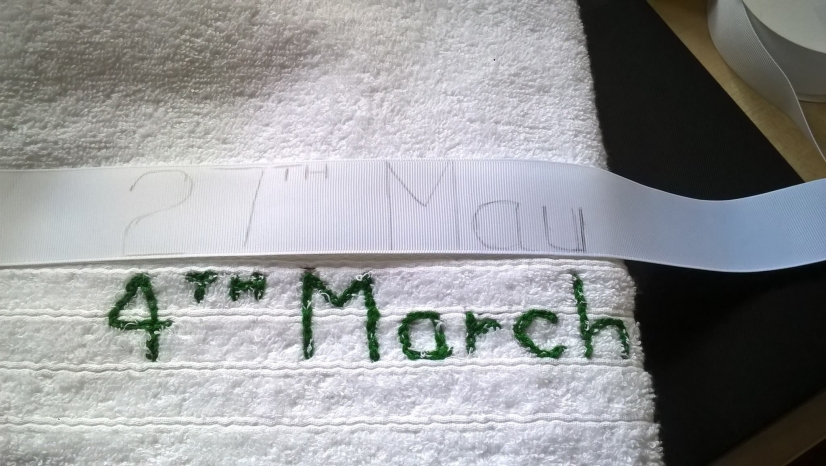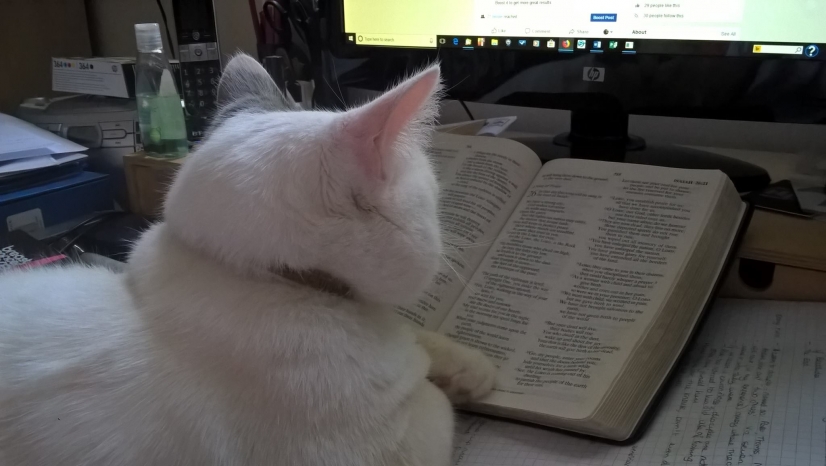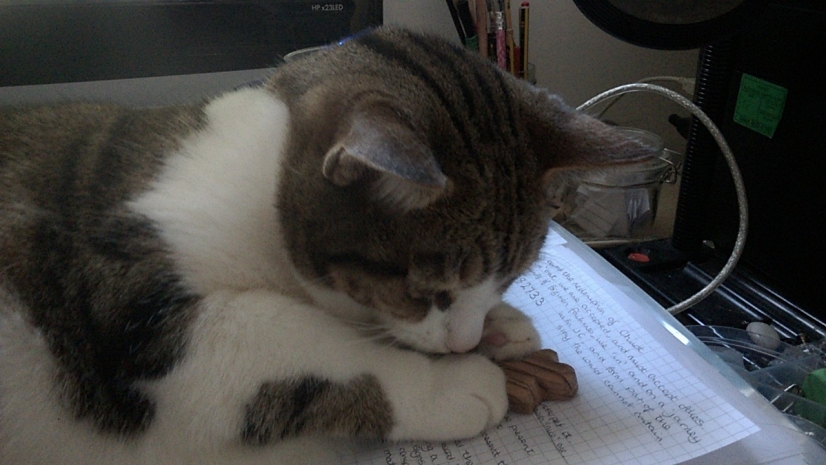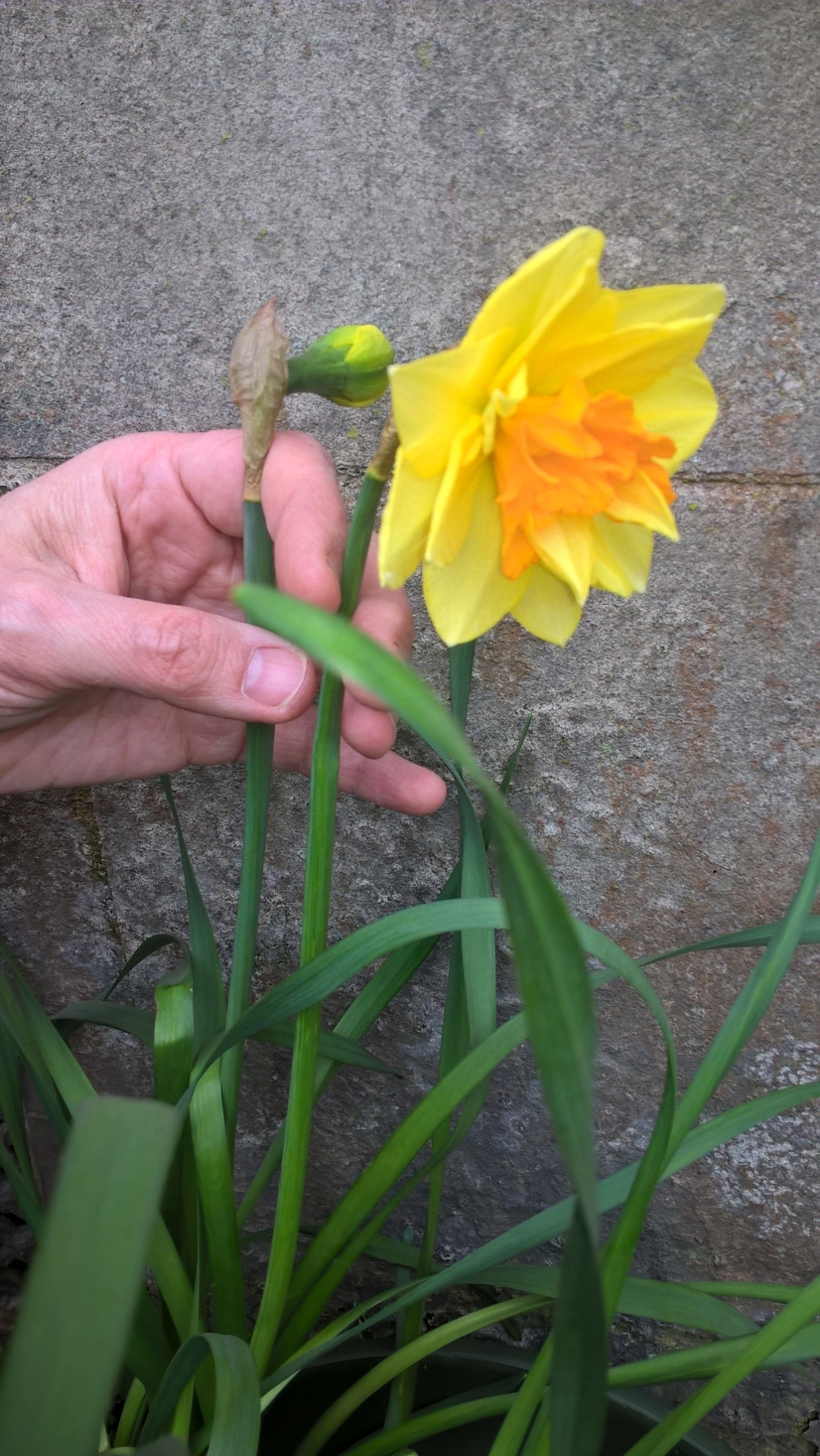When the heavy snow meant we had to postpone our Baptism service, there were some unusual implications.
The photo shows one of them - and the flaw in my cunning plan... Unpicking and re-rembroidering isn't practical, so I need to 'cover up'. When buying the ribbon I failed to note that a letter y' has a tail... oops. The upshot is that I will have to stitch the ribbon over the old date before I can do the tail of the 'y'.
There's probably a moral in there somewhere, but I'm not sure what it is!!




